White House defends Donald Trump’s response to white supremacy rally in Charlottesville
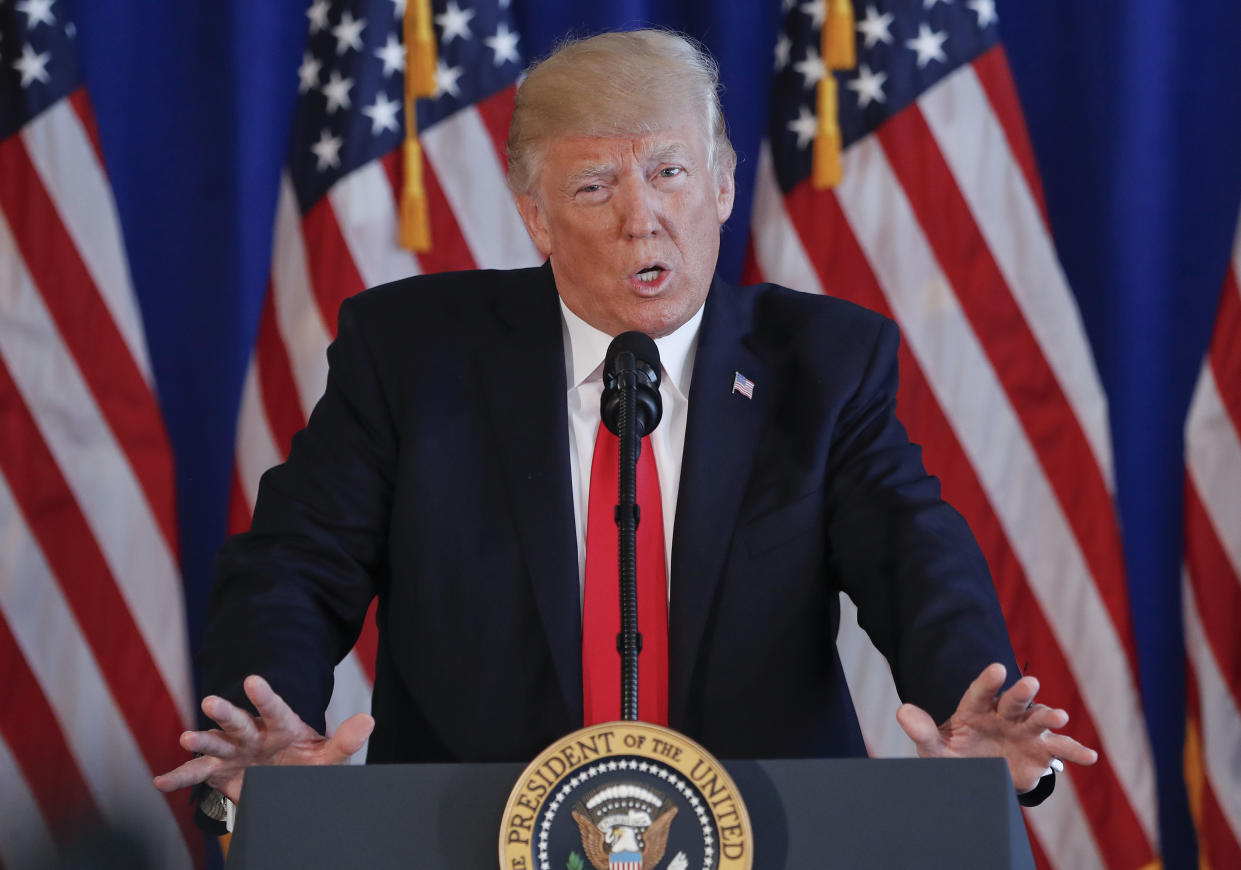
The White House has defended Donald Trump’s response to the white supremacist rally in Charlottesville following criticism that he didn’t go far enough.
The President said he condemned “in the strongest possible terms this egregious display of hatred, bigotry, and violence on many sides” after violence erupted.
However, Trump came under fire for not explicitly denouncing white supremacists in the aftermath of violent clashes in Virginia, with the president being urged to take a public stand against groups that espouse racism and hate.
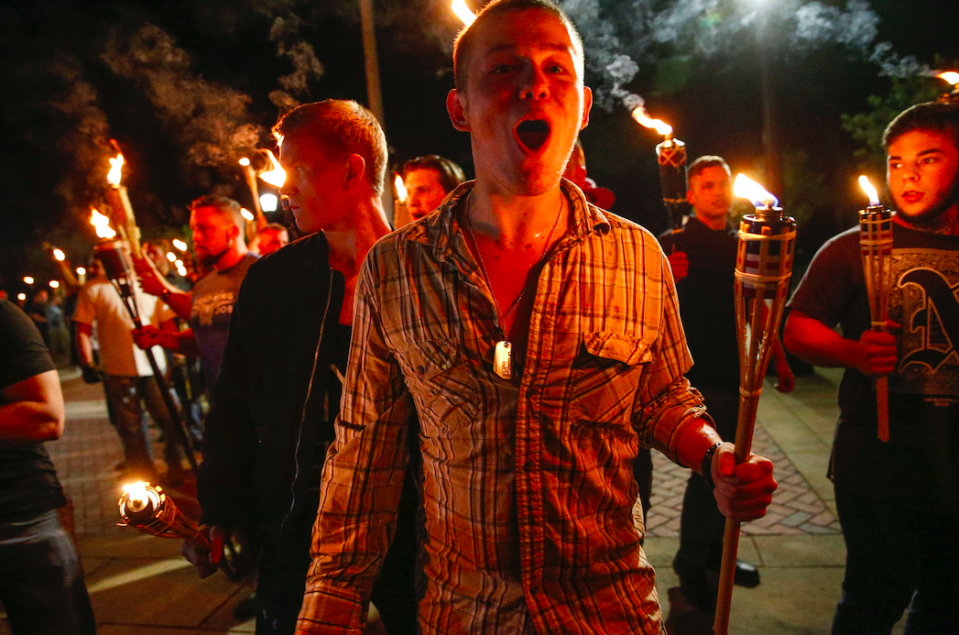
Following the criticism, the White House issued a statement last night clarifying that Trump’s condemnation had included white supremacists.
A spokesperson said: “The President said very strongly in his statement yesterday that he condemns all forms of violence, bigotry and hatred.
“Of course that includes white supremacists, KKK, neo-Nazi and all extremist groups.
“He called for national unity and bringing all Americans together.”
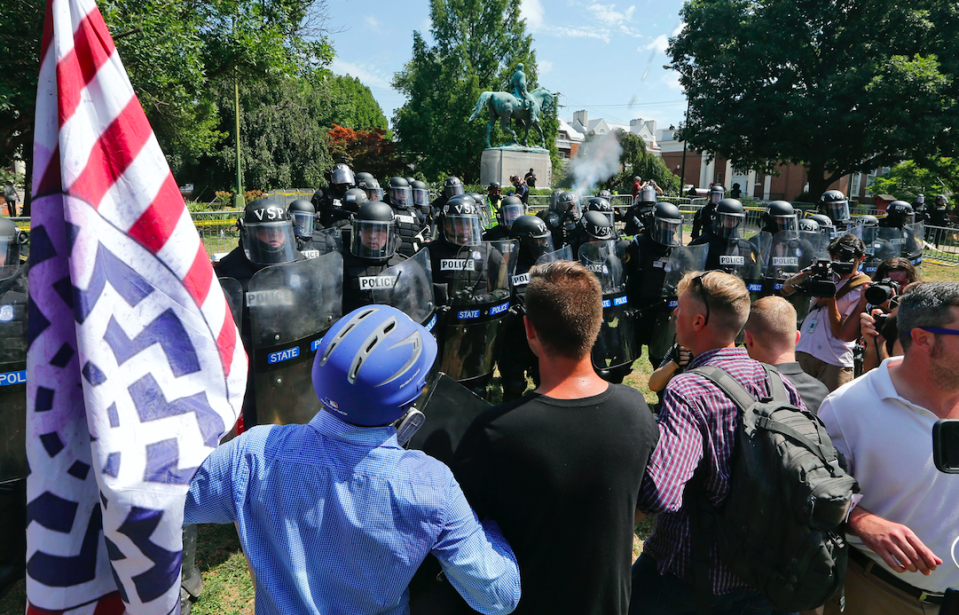
What was the rally about?
White nationalists assembled in Charlottesville to vent their frustration against the city’s plans to take down a statue of Confederal general Robert E Lee, a general who had fought for the pro-slavery Confederacy during the US Civil War.
Counter-protesters massed in opposition to the ‘Unite the Right’ march. A few hours after violent encounters between the two groups, a car drove into a crowd of people peacefully protesting against the rally, resulting in the death of 32-year-old Heather D Heyer.
MORE: Ivanka and Donald Trump Finally Condemn Nazis, but Not Really, a Day After Charlottesville Violence
MORE: Charlottesville Vigil For Protest Crash Victim
Twenty-year-old James Fields from Ohio is the alleged driver and he was taken into detention on suspicion of second-degree murder.
Alt-right leader Richard Spencer and former Ku Klux Klan member David Duke attended the demonstrations, and Mr Duke told reporters the white nationalists were working to “fulfil the promises of Donald Trump”.
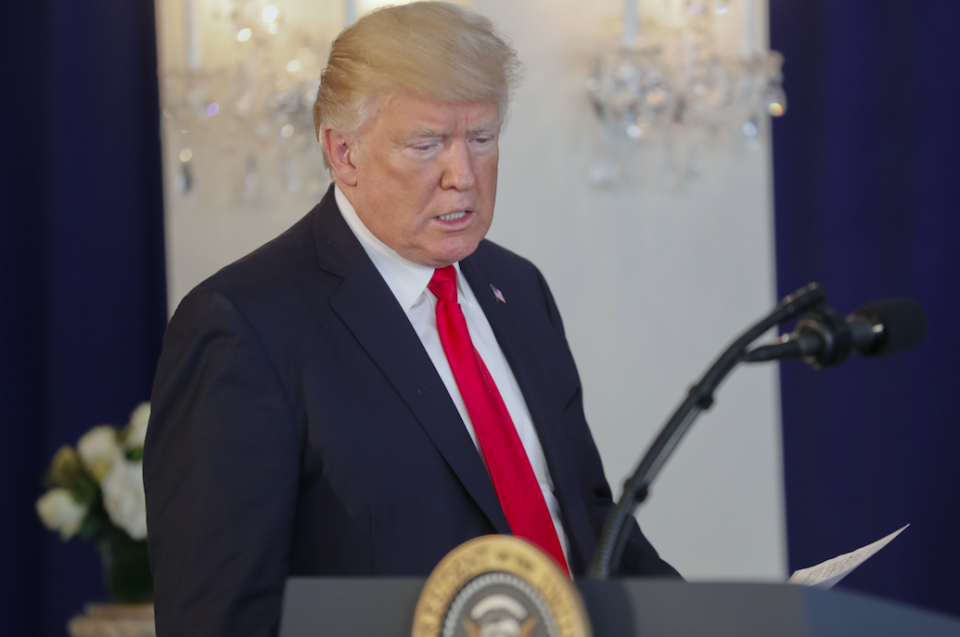
What was Trump’s initial response?
The President addressed the nation while on a working holiday at his New Jersey golf club. He did not single out any group, instead blaming “many sides” for the violence.
He said: ”Hate and the division must stop, and must stop right now. We have to come together as Americans with love for our nation and… true affection for each other.”
He condemned “in the strongest possible terms this egregious display of hatred, bigotry and violence on many sides, on many sides”.
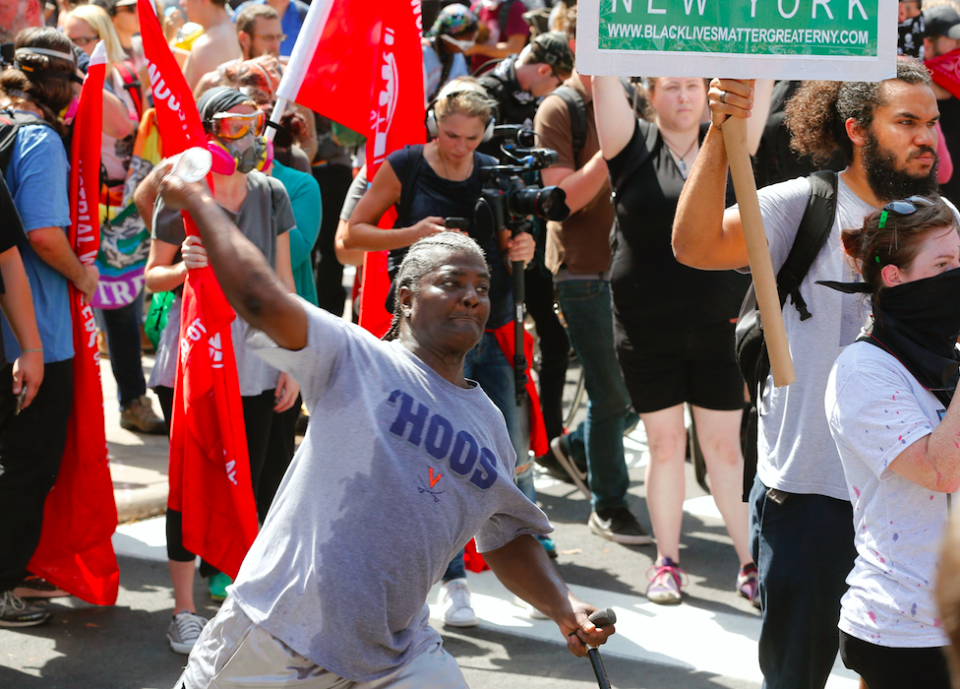
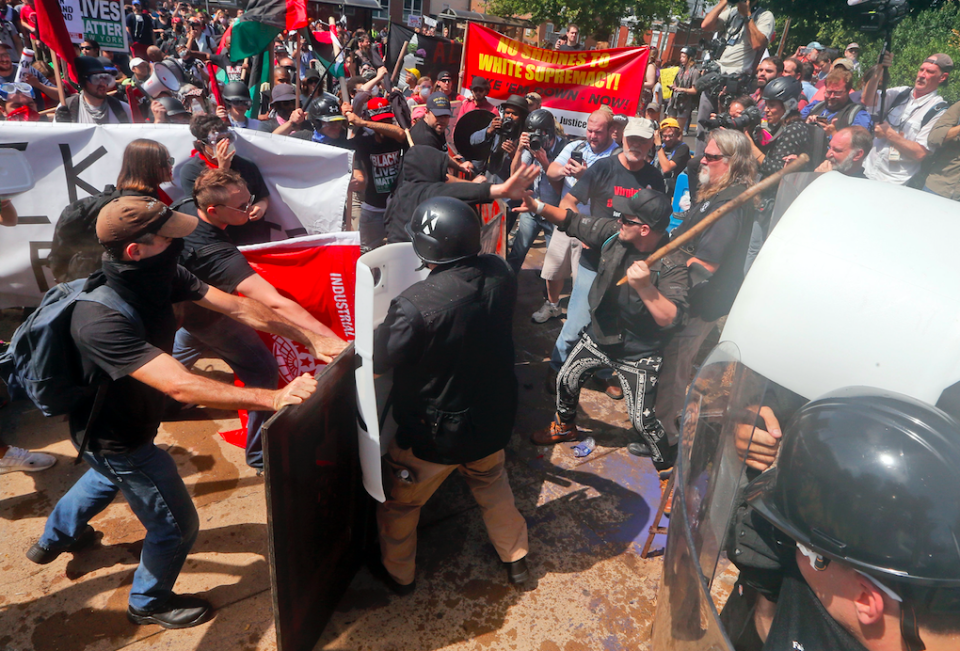
He added: “It’s been going on for a long time in our country. Not Donald Trump. Not Barack Obama. It’s been going on for a long, long time.”
During his address, Trump did not answer questions from reporters about whether he rejects the support of white nationalists or whether he believes the car crash was an example of domestic terrorism.
What was the response from other officials?
Many fellow Republicans demanded Trump personally denounce the white supremacists.
Senator Cory Gardner tweeted: “Mr. President – we must call evil by its name. These were white supremacists and this was domestic terrorism.”
Senator Marco Rubio added: “Nothing patriotic about #Nazis,the #KKK or #WhiteSupremacists. It’s the direct opposite of what #America seeks to be.”
Mr. President – we must call evil by its name. These were white supremacists and this was domestic terrorism. https://t.co/PaPNiPPAoW
— Cory Gardner (@SenCoryGardner) August 12, 2017
Republican Chris Christie, a staunch Trump supporter, wrote: “We reject the racism and violence of white nationalists like the ones acting out in Charlottesville. Everyone in leadership must speak out.”
On the Democrat side, Senate minority leader Charles Schumer said: “Of course we condemn ALL that hate stands for. Until @POTUS specifically condemns alt-right action in Charlottesville, he hasn’t done his job.”
Democrat Governor Terry McAuliffe, who spoke to Trump in the hours after the clashes, said he twice “said to him we have to stop this hateful speech, this rhetoric”, and he urged the President to “come out stronger” against the actions of white supremacists.
1:2 There should be no place in society for racism, white supremacy and neo-nazis.
— Ivanka Trump (@IvankaTrump) August 13, 2017
Mr Trump’s national security adviser HR McMaster said on Sunday that he considered the attack in Charlottesville to be terrorism, telling ABC’s This Week: “I certainly think anytime that you commit an attack against people to incite fear, it is terrorism.
“It meets the definition of terrorism. But what this is, what you see here, is you see someone who is a criminal, who is committing a criminal act against fellow Americans.”
The President’s daughter and White House aide Ivanka Trump tweeted on Sunday morning: “There should be no place in society for racism, white supremacy and neo-nazis.”

 Yahoo News
Yahoo News 

